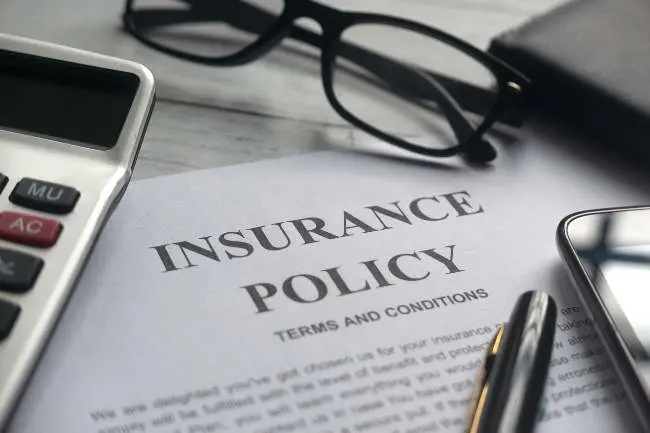As an entrepreneur, you have invested so much in building a successful small business. However, the path to success is often paved with unexpected challenges and risks. That is where small business insurance comes into play. It is a safety net for your many investments and an assurance of sustainability.
- Why Choose Small Business Insurance?
- Types of Small Business Insurance
- Small Business Insurance Requirements in Canada
- Factors to Consider for Small Business Insurance in Canada
- Misconceptions about Small Business Insurance
- How Much Does Small Business Insurance Cost?
- Tips for Making a Claim on Your Small Business Insurance
- Best Practices for Small Business Insurance
- Resources for Small Business Insurance in Canada
Why Choose Small Business Insurance?
Small business insurance is not just a legal requirement. It is an investment in the future of your company. Lack of proper coverage can potentially turn a single unfortunate event into a natural disaster, lawsuit, or cyberattack into something that could wipe out your life’s work. With the right insurance coverage, you can protect your hard-earned business, minimize your financial loss, and keep the business moving on.
Types of Small Business Insurance
The world of small business insurance contains a long list of policies meant to cover many risks and eventualities. Below are some of the types of policies:
- General Liability Insurance: This policy will protect your business against claims by third parties regarding bodily injury, property damage, or personal injury (such as libel or slander).
- Professional Liability Insurance (Errors and Omissions): This type of insurance protects you in case a client claims you made negligence, errors, or omissions in the performance of your professional duties.
- Commercial Property Insurance: This policy ensures physical assets against risks like fire, theft, and acts of God.
- Business Interruption Insurance: Insurance that provides the necessary funds to replace lost revenue and pay ongoing expenses in the event of a covered loss that shuts down the business, either temporarily or permanently.

- Cyber Liability Insurance: This policy helps protect your business from any financial aftermath that might result from data breaches, cyber-attacks, or any other digital risk as the cyber threat continues to rise both in volume and impact.
- Workers’ Compensation Insurance: In most provinces and territories, this is a compulsory coverage that gives benefits to employees who suffer work-related injuries or diseases.
- Commercial Auto Insurance: When a business owns a vehicle or works with vehicles, coverage is provided for all the damages and liabilities that occur in an accident.
Small Business Insurance Requirements in Canada
While there are slight variations in the insurance requirements for small businesses from one province or territory to the other and from one industry to another. Some are mandatory by law in Canada. For example, workers’ compensation is required by law in most jurisdictions if you have employees.
There may also be special categories of businesses that are required to have insurance according to regulation. Professional service providers such as lawyers, accountants, or consultants may be required to carry professional liability insurance.
Understanding the Insurance Needs of Your Small Business
Every business is unique and, hence, poses its risks and challenges. For a more exhaustive protection cover, it is required to verify insurance needs based on factors like:
- Industrial: Different kinds of risks are faced by different industries. For this, a construction company would require a specialized kind of coverage for liability concerning construction projects. While professional liability insurance can be used for a consulting firm.
- Business Size and Structure: Business size and legal structure such as sole proprietorship, partnership or corporation can largely affect the types and amounts of coverage you require.
- Number of Employees: Businesses that have employees might also need other forms of insurance including workers’ compensation insurance and employment practices liability insurance.
- Location: Your business’s physical location could impact the vulnerability you are exposed to in terms of natural disasters and the crime rate, which might necessitate additional coverage.
By carefully evaluating these factors, you can tailor your insurance coverage to meet the specific needs of your small business, ensuring that you are adequately protected without overpaying for unnecessary coverage.
How to Choose the Right Insurance Provider for Your Small Business
With the enormous number of insurance companies around, choosing the right one for your small business can be a very challenging task. Here are key considerations to guide your decision.
- Reputation and Financial Stability: Always make sure that the insurance carrier you are considering has a good rating and reputation within the industry and is financially stable. This helps you have the confidence that your claims will be paid promptly and that they will fulfill their obligation.
- Industry Experience: Identify insurance providers that have a history of working with your industry or sector. They will be better attuned to the type of risks and problems you are likely to face and thus customize the insurance coverage and risk management solutions professionally.
- Customer Service: Check how the service is with an insurance provider. Look for one with clear communication, responsiveness, and a dedication to supporting its clients through the claims process.

- Coverage Options: Evaluate the scope of coverage options from the insurer to ensure they not only suit your needs at the moment but will still be sufficient as your business grows and changes.
- Cost and Value: This is not the only determinant, but the costs need to be weighed between premiums and deductibles from one provider to another to obtain a balance between comprehensive coverage and cost-effectiveness.
Factors to Consider for Small Business Insurance in Canada
Besides the insurance provider itself, there are several other factors one must consider in choosing the right small business insurance policies for a Canadian venture:
- Location: Your business requirements for insurance and the associated risk may differ based on the location where you are establishing your business. It could be from a big city to the countryside or within a single province or territory.
- Industry: Some kinds of industries like construction, manufacturing or transportation, can intimate special risks with very peculiar insurance needs.
- Business Size and Growth Projections: As your business grows, your insurance needs might expand. Consider insurances that are scalable with business growth or allow for flexible coverage.
- Risk Exposure: Identify the possible risks to your business such as liability exposures, property risks, cyber threats, and more, to have an inclusive coverage policy.
- Compliance Requirements: Review all industry-specific regulations or legal requirements that may dictate particular insurance coverage conditions.
Misconceptions about Small Business Insurance
Small business insurance is very important yet greatly misunderstood or underrated. Here are the common misbeliefs that one should watch out for:
- Myth: Small businesses do not need insurance.
Reality: All businesses face risks that can potentially threaten their operations and financial stability. Your business faces several risks that could be very dangerous without appropriate insurance. - Myth: General liability insurance is sufficient.
Reality: While being a significant component, general liability insurance alone cannot bring complete protection. Depending on the nature of your business, the other policies you would consider are professional liability, cyber liability, and business interruption. - Myth: Insurance Is Too Expensive for Small Businesses.
Reality: While the cost of insurance premiums can vary based on factors like industry, coverage limits and claims history, most are priced within the budgets of small businesses. Shopping around and exploring bundling opportunities can help you find affordable coverage. - Myth: Once the policy is in place, you are fully protected.
Reality: Many insurance policies have exclusions, limitations, and deductibles that may have an impact on the level of coverage. It is very important to read and understand the extent of a policy in a manner that makes it meet your business requirements. - Myth: Here is why small businesses do not need cyber liability insurance.
Reality: In this world of the internet, cyber threats have perhaps been the greatest risks to all sorts and scales of businesses and organizations. This form of insurance coverage provides financial protection to your business from the effects of data breaches, cyber-attacks, or any other cyber-related incident.
How Much Does Small Business Insurance Cost?
The price of small business insurance depends on several factors, which could be:
- Business Type: The types of industries that inherently have more risks—like construction or manufacturing—tend to have to pay more in insurance costs.
- Business Size and Revenue: Premiums vary significantly between large businesses in terms of workforce, assets, revenue, and smaller operations.
- Location: The cost of insurance could be affected by where the business is located, the level of crime, the propensity for natural disasters, and the local regulatory climate, among other factors.
- Coverage Limits and Deductibles: Limit of coverage, generally with a higher premium, and a lower deductible, but better coverage in return.
- Claims History: Businesses that have experienced a history of frequent or costly claims may find themselves subject to some level of premium increase or non-renewal.
It would be difficult to quote a one-size-fits-all number, but, today, a majority of insurance companies offer quote tools online, or better yet, consultations to help you get a feel for ballparking the cost for your business.
Tips for Making a Claim on Your Small Business Insurance
In the event of the unforeseen and you must claim from your insurance policy, the following are tips for an easier, more successful experience:
- Notify Your Insurer Promptly: Most policies require prompt notification of a claim or potential claim. Failure to do so could jeopardize your coverage.
- Gather Evidence: Gather and organize all relevant documents to your claim that would serve as evidence. This evidence can include receipts, invoices, photographs, and witness statements.
- Work with the Claims Process: Answer promptly all questions and requisitions asked by the insurer for information or documents and be prepared to furnish a full account of the incident or loss.
- Review Your Policy: Be sure to review the policy documents and see if there are any stipulated procedures to be followed or any special requirements concerning claims.
- Seek Professional Help: If your claim is complicated or involves large amounts of loss, you may need to seek help from a public adjuster or attorney to protect your interests.
Best Practices for Small Business Insurance
Here are some of the best practices that you can consider in your small business insurance to derive maximum benefit and minimize potential risks:

- Periodic Risk Assessances: Periodic reviews of business operations, assets, and potential liabilities to identify any new risks that may need additional cover.
- Periodic Policy Review and Update: Your business is dynamic, and so are your insurance needs. Your policies should be reviewed at least annually to ensure changes in operations, assets, and exposures are adequately protected.
- Use Risk Management Strategies: Implement procedures aimed to reduce potential risks such as safety procedures, cyber protection, and employee training.
- Proper Records: Keep proper records of your business activities and transactions, assets, and financial statements, as they shall at any one time be critically needed in a claim or audit process.
- Create a Culture of Safety and Compliance: Develop a culture in the workplace that values safety and compliance with best practices to minimize risk and liabilities to the greatest extent.
Resources for Small Business Insurance in Canada
Here are some invaluable resources to help get you through the world of small business insurance in Canada:
- Insurance Bureau of Canada (IBC): The national industry association representing private home, auto, and business insurers in Canada; offers education, industry statistics, and consumer information.
- Provincial and Territorial Insurance Regulators: Each of the provinces and territories in Canada has its insurance regulators who administer, supervise, and enforce insurance laws, guidelines, and rules. Each may provide information on the terms of insurance and consumer protection within their respective jurisdictions.
- Industry Associations: A lot of industries also have associations that could be resourceful and advise on the insurance needs peculiar to the sector. Such associations will, of course, have specialized resources and experiences in mitigating various risks and problems at businesses in the industries.
- Insurance Brokers and Agents: It is said that working with a reputable insurance broker or agent is worth a fortune. One may evaluate business needs, give customized advice, and support you through all the many difficulties of policies and insurance world providers.
- Online Resources: In Canada, there are a large number of websites and online forums associated with the provision of small business insurance, from information and advice to tools one might need.
- Government Resources: Government agencies, for example, the Canada Business Network, offer information and resources that help a small business owner determine their insurance obligations and make decisions in that regard.
- Educational Resources: Some insurance companies, business associations, and colleges provide seminars, webinars, or online classes to give exposure to small business owners on insurance practices.
Conclusion
Securing the right small business insurance is an invaluable investment for the long-term success and resilience of your business. Understanding your risks, examining different coverage options, and working with reputable insurance providers help protect your hard-earned assets and assure business continuity in the face of unexpected challenges.
Frequently Asked Questions
Why would I need small business insurance?
It protects your business from financial loss in the event of property damage, liability claims, and any other risks.
How does workers’ compensation insurance work?
It covers medical expenses and lost wages for employees injured on the job.
Does small business insurance include or cover employee theft?
Employee theft is usually insured under a fidelity bond or a crime insurance policy.
How do I file a claim?
Give them a call, and send in whatever proof of the claim they require, then go through the steps to file it.
Can I deduct small business insurance premiums on my taxes?
Yes, the premiums are typically tax deductible as business expenses.
Does a small business insurance policy in Canada need to be made compulsory?
While not all Canadian small business insurance is mandatory, some, depending on the province in which you reside and the nature of your business, must comply with the law, for example, workers’ compensation.














